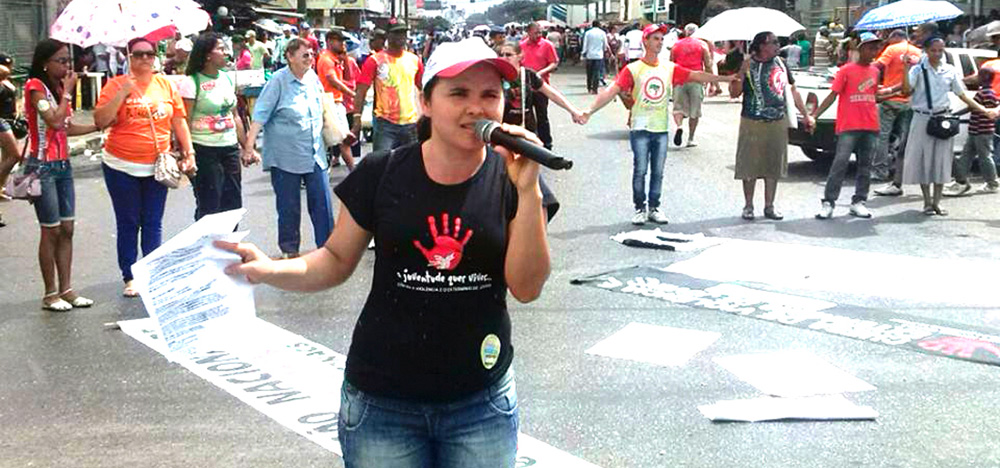I have HOPE when I see more and more young people getting involved in social and environmental issues to protect human life and the planet.
I HOPE that there will be a growing respect for women and the elderly, who are the bearers of the wisdom that life has taught them.
I HOPE that people, imbued with a spirituality that liberates them, will be able to denounce all forms of violence and exploitation and proclaim the values of the Kingdom of God.
Looking at us and at my country, I believe it is essential to choose the path of active HOPE, which motivates us to fight every day for a dignified life for all, because the Spirit of God, who is a renewing presence, always brings something new, even in the face of suffering. May our generation never forget and remember what can give us hope, because God is love and full of grace. By recognising our weaknesses and cultivating humility, there are endless opportunities to create new relationships of sharing, care, otherness and solidarity, and to strengthen HOPE.
|
To live in HOPE, I take inspiration from our great Brazilian educator, Paulo Freire. In his work Pedagogy of Hope (1992) he proclaimed:
'... You must have hope ... There are people who associate hope with the verb 'to wait'. But that is not hope, it is waiting.
But to hope is to get up, to hope is to try, to hope is to build, to hope is not to give up!
To hope is to move forward, to hope is to join forces with others to do things differently...'.
Our Brazilian people, faced with countless difficulties in life, stand up and fight every day, never losing faith, because we are pilgrims of HOPE.
Sr. Wanderleia Dalla Costa SDS |


